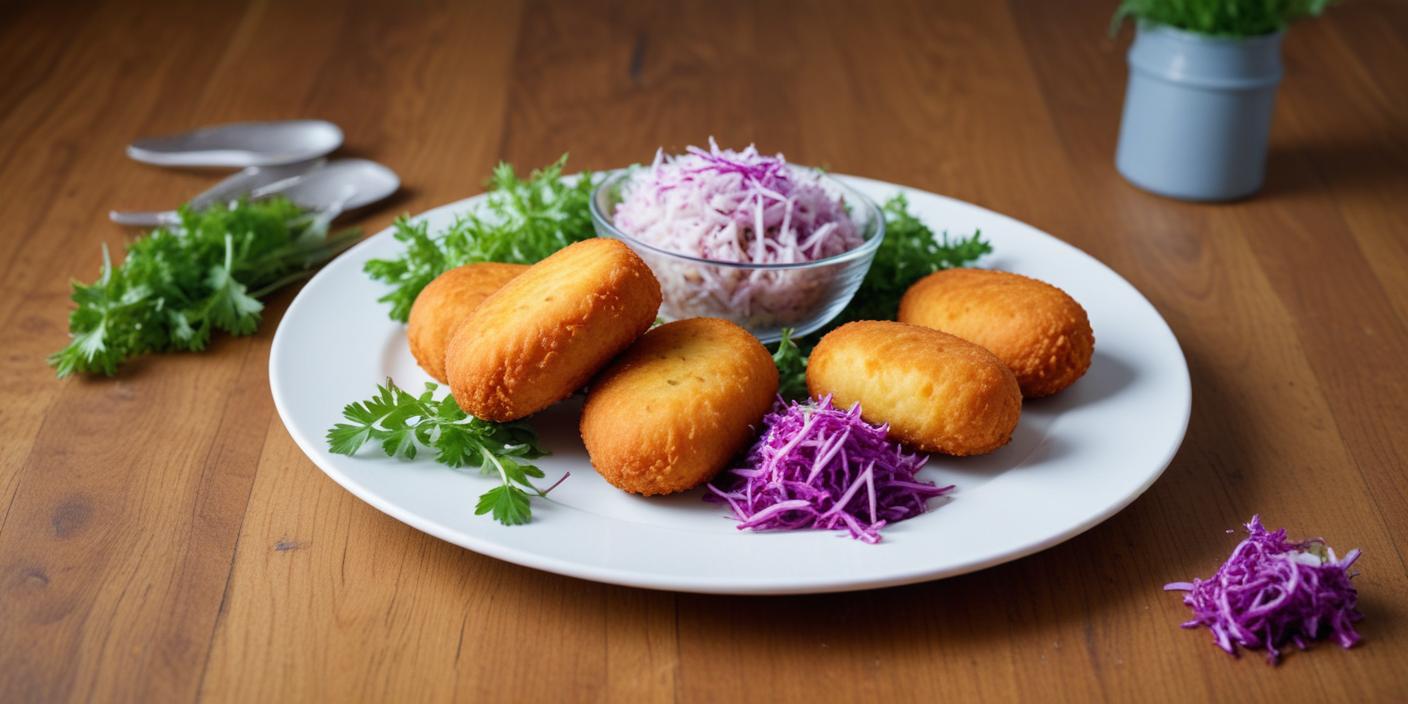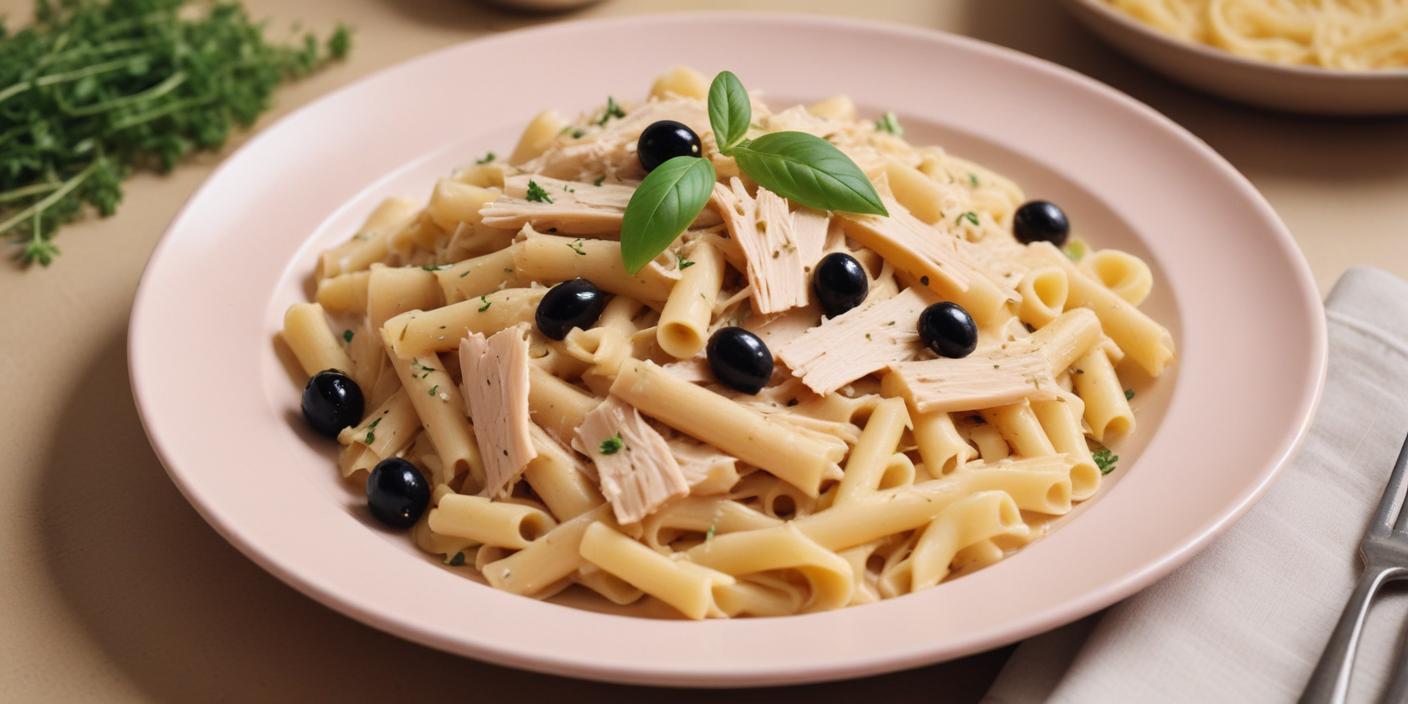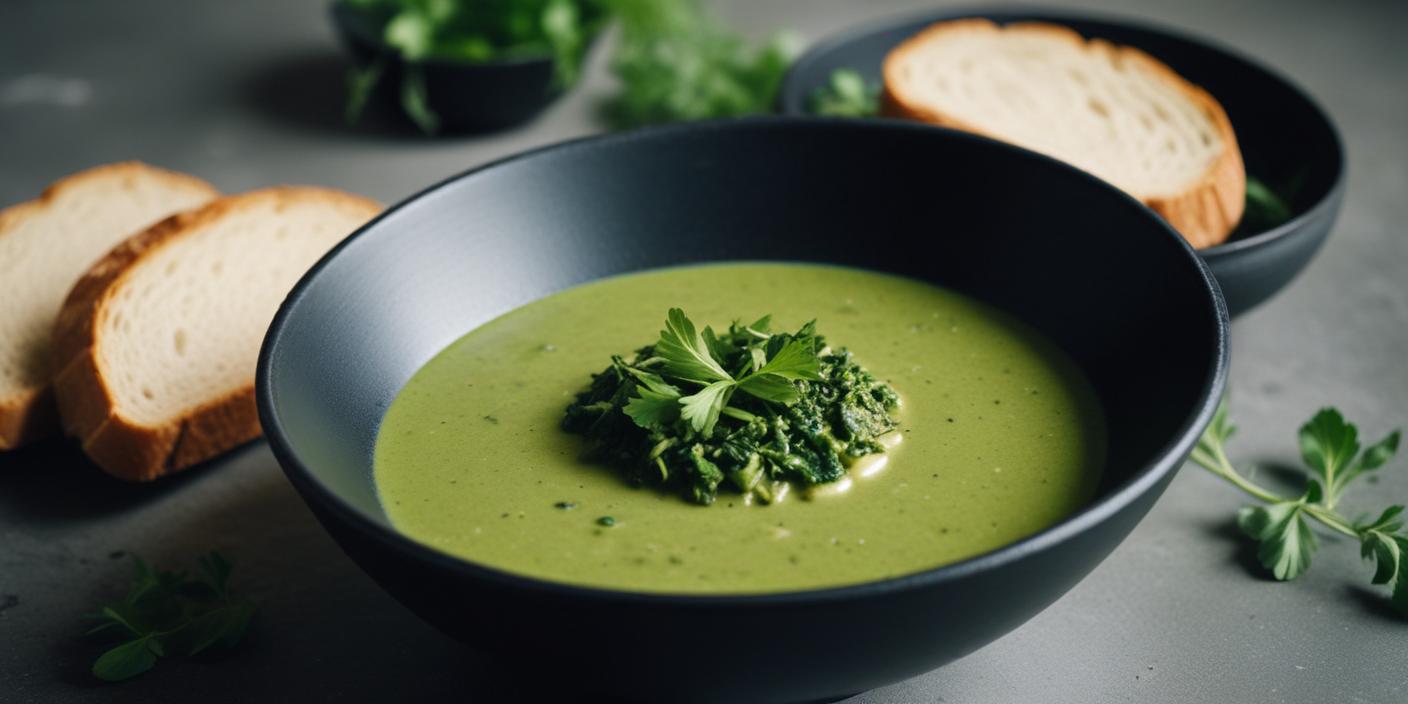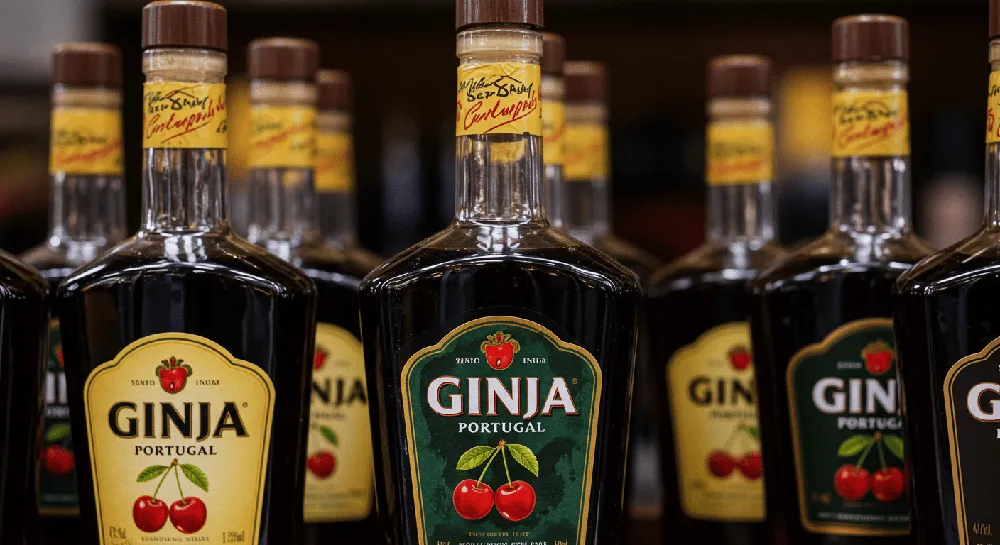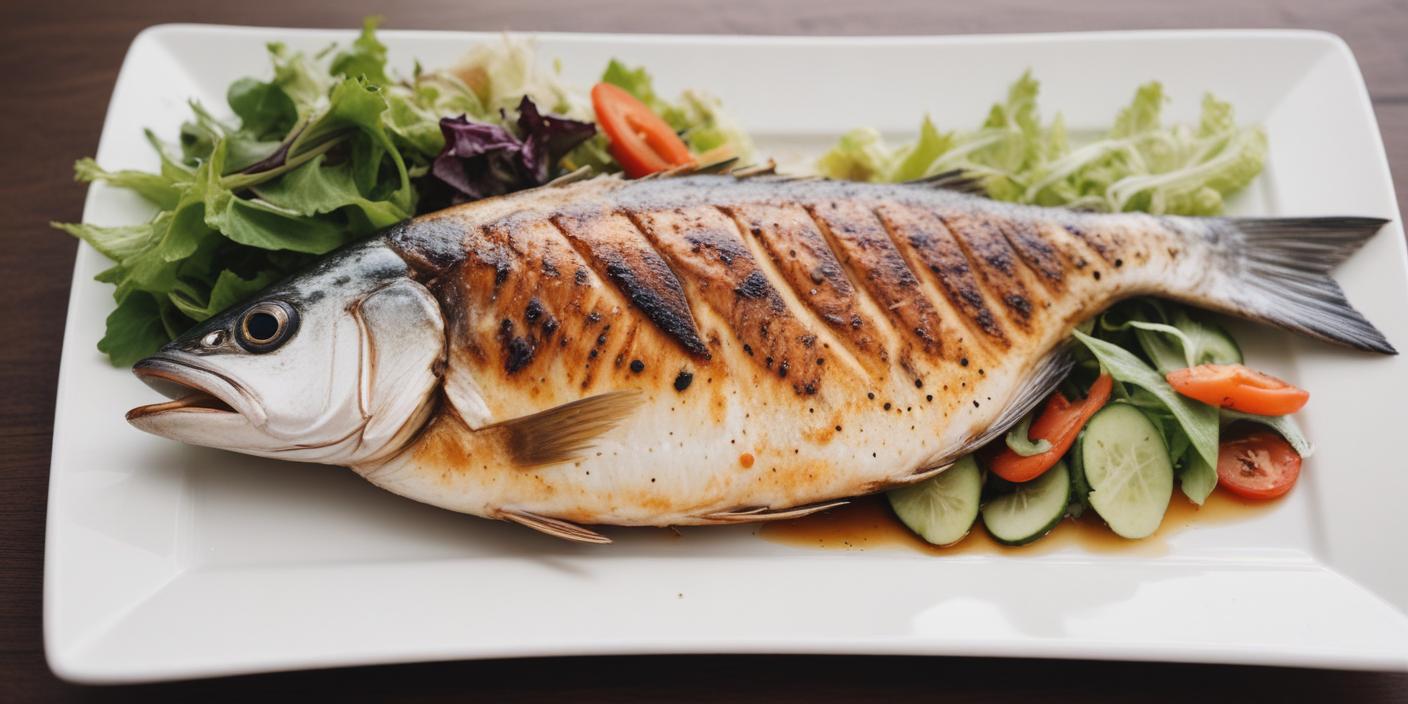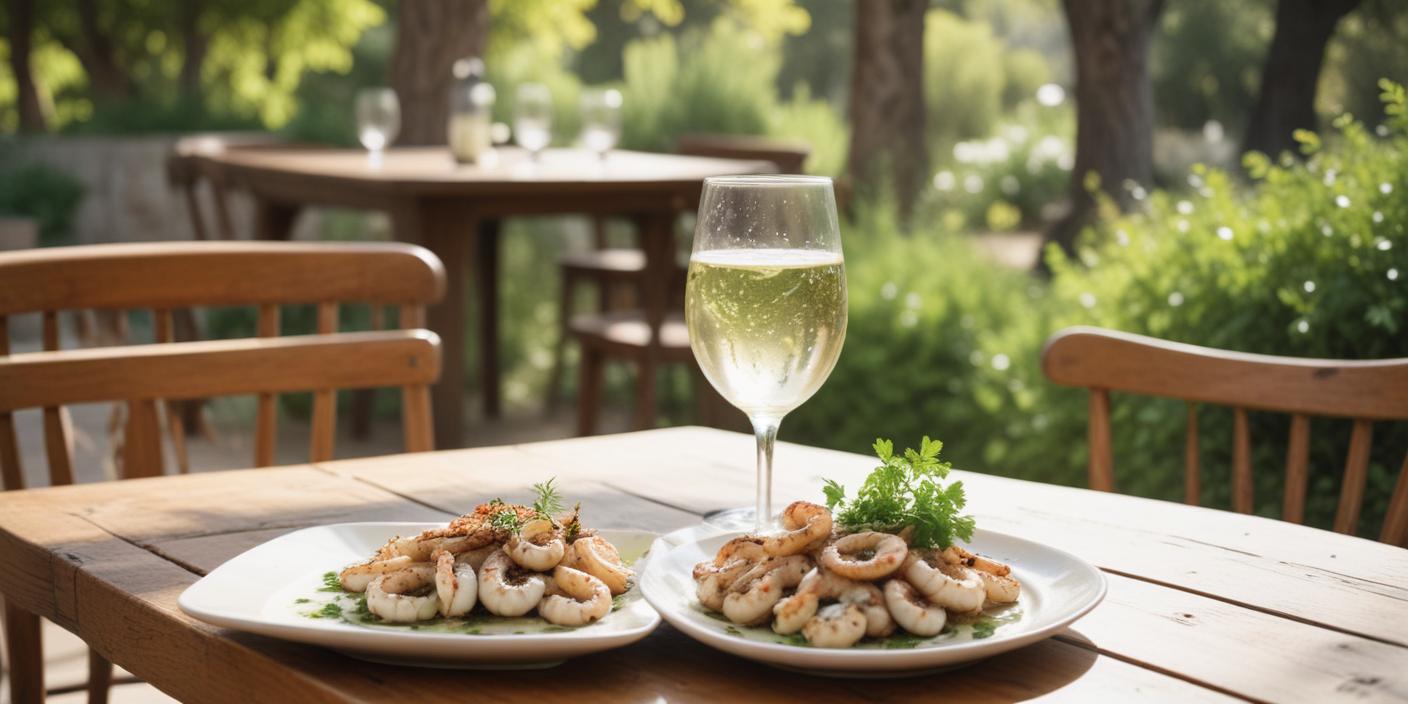Contents
- Portuguese Food – 17 Must-Try Dishes in Portugal
- 🥪 Francesinha – Portugal’s Ultimate Indulgent Sandwich
- 🐟 Bolinhos de Bacalhau – Portugal’s Crispy Codfish Fritters
- 🥧 Pastéis de Nata – Portugal’s Iconic Custard Tarts
- 🐟 Bacalhau à Brás – Portugal’s Ultimate Salted Cod & Egg Dish
- 🍷 Port Wine – Portugal’s Sweet & Bold Wine Treasure
- 🥪 Bifana – Portugal’s Iconic Pork Sandwich
- 🐖 Carne de Porco à Alentejana – Portugal’s Famous Pork & Clam Dish
- 🍷 Vinho Verde – Portugal’s Refreshing “Green Wine”
- 🧁 Queijada – Portugal’s Irresistible Mini Cheesecake from Sintra
- 🥘 Bacalhau com Natas – Portugal’s Creamy Codfish Casserole
- 🥣 Caldo Verde – Portugal’s Beloved Green Soup
- 🍒 Ginjinha – Portugal’s Famous Sour Cherry Liqueur
- 🌭 Chouriço Assado – Portugal’s Fiery Flame-Grilled Sausage
- 🦆 Arroz de Pato – Portugal’s Flavor-Packed Duck Rice
- 🥩 Pica Pau – Portugal’s Bold & Flavorful Meat Dish
- 🐟 Sardinhas Assadas – Portugal’s Iconic Grilled Sardines
- 🐙 Salada de Polvo – Portugal’s Refreshing Octopus Salad
Portuguese Food – 17 Must-Try Dishes in Portugal
Portugal is a food lover’s paradise, where fresh ingredients, bold flavors, and time-honored traditions come together to create an unforgettable culinary experience. From hearty stews to flaky pastries, Portuguese cuisine is a delightful journey through history, culture, and passion for food.
Join us as we explore the top Portuguese dishes, drinks, and hidden gems that you absolutely must try on your next trip to Portugal! 🍷🐟🥘
Why Portuguese Food is a Must-Try Experience?
With influences from the Atlantic Ocean, Mediterranean flavors, and a history of global exploration, Portuguese cuisine is both rustic and refined. Whether you’re indulging in fresh seafood by the coast, savoring traditional comfort dishes in a family-run tasca, or enjoying a sweet pastel de nata in a charming café, each bite tells a story.
Explore Portugal Through Its Food & Drinks 🍷🥖
🍽️ Dive into traditional taverns & street food markets
🍷 Sip on world-famous Port wine & refreshing Vinho Verde
🌊 Taste the freshest seafood along the Atlantic coast
🔥 Savor slow-cooked stews & bold flavors in local tascas
Plan Your Ultimate Food Adventure in Portugal 🇵🇹
If you’re planning to visit Portugal, take your experience to the next level with our fully planned Portugal tours! We handle:
🏨 Accommodation – Stay in handpicked locations
🚆 Transportation – Seamless travel across Portugal
🎭 Cultural experiences – Authentic food tours & more
💡 Travel Smart! Prepare for your trip by checking out our:
📍 Complete guide to visiting Portugal
🏙️ City guides & must-see attractions
🛍️ Souvenir recommendations – Bring home the best gifts!
🏖️ The most stunning beaches in Portugal
Get Ready to Taste the Best of Portugal!
From grilled sardines in Lisbon to Francesinha in Porto, Portugal’s rich culinary scene is waiting for you. Whether you’re a foodie, a traveler, or simply curious, this 17-dish guide will help you navigate the best flavors Portugal has to offer.
🔥 Which Portuguese dish are you most excited to try? Let us know in the comments! 👇🍽️✨
🥪 Francesinha – Portugal’s Ultimate Indulgent Sandwich
No Portuguese food guide is complete without mentioning Francesinha, the legendary sandwich from Porto that’s as decadent as it is delicious. This cheesy, meaty, sauce-covered masterpiece is a must-try, but be warned—you’ll need a big appetite and an empty stomach before diving in!
What is Francesinha?
Often called Portugal’s answer to the Croque Monsieur, Francesinha (meaning “Little Frenchie”) is an over-the-top, flavor-packed sandwich that consists of:
✔️ Thick slices of bread – The base of this epic dish 🍞
✔️ Wet-cured ham & pork sausage – Adding a rich, smoky depth 🥓
✔️ Fresh sausage & steak (or roast meat) – Making it extra hearty 🥩
✔️ Melted cheese on top – Because there’s no such thing as too much cheese 🧀🔥
✔️ Drenched in a thick, spicy tomato & beer sauce – The soul of Francesinha 🍅🍺
✔️ Served with crispy French fries – Because why not? 🍟
💡 Fun Fact: Francesinha was created in Porto in the 1960s by a chef who was inspired by the French Croque Monsieur but wanted to give it a bold Portuguese twist.
How is Francesinha Served?
🥘 With extra sauce on the side – You’ll want to dip every bite
🍳 Topped with a fried egg (Francesinha Especial) – For an even richer experience
🍺 Paired with a cold Portuguese beer – To cut through the richness
Where to Eat the Best Francesinha?
🛑 Porto is the home of Francesinha! Here are some top spots:
📍 Café Santiago – A local favorite 🍽️
📍 Bufete Fase – Famous for its spicy sauce 🔥
📍 O Golfinho – A hidden gem for a traditional experience
A Must-Try in Portugal!
If you’re looking for the ultimate comfort food in Portugal, Francesinha is the way to go. Whether you’re recovering from a long night out or simply craving a hearty meal, this cheesy, meaty, sauce-smothered delight is an experience in itself.
🐟 Bolinhos de Bacalhau – Portugal’s Crispy Codfish Fritters
No Portuguese food journey is complete without Bolinhos de Bacalhau, also known as Pastéis de Bacalhau—golden, crispy codfish fritters that are one of Portugal’s most famous appetizers. Whether served hot or cold, these savory bites are a must-try for seafood lovers!
What Are Bolinhos de Bacalhau?
These deep-fried delights are Portugal’s take on fish croquettes, made from:
✔️ Salted cod (Bacalhau) – The heart of Portuguese cuisine 🐟
✔️ Mashed potatoes – Creating a soft, creamy interior 🥔
✔️ Eggs & onion – Adding texture and richness 🧅🥚
✔️ Fresh parsley – A hint of herbaceous freshness 🌿
✔️ Deep-fried until golden – Crispy on the outside, fluffy on the inside ✨
💡 Fun Fact: Portugal has over 1,000 ways to prepare Bacalhau, and Bolinhos de Bacalhau is one of the most beloved recipes!
How Are Bolinhos de Bacalhau Served?
🍽️ As a starter or snack – A staple in Portuguese tascas (small taverns)
🍷 With a glass of Vinho Verde – The crisp wine pairs perfectly with the salty cod
🥗 Alongside a fresh salad – For a lighter touch
💛 With creamy arroz de tomate (tomato rice) – A traditional pairing
Where to Eat the Best Bolinhos de Bacalhau?
📍 Casa Portuguesa do Pastel de Bacalhau (Lisbon & Porto) – Famous for its cheese-stuffed version 🧀🔥
📍 Traditional seafood restaurants – Found all over Portugal 🇵🇹
📍 Homemade in Portuguese kitchens – Every family has its secret recipe
A Must-Try Portuguese Delicacy
Whether you enjoy them as a quick snack with a glass of wine or as a starter before a big Portuguese feast, Bolinhos de Bacalhau are a crunchy, savory delight that perfectly captures Portugal’s love for codfish.
🥧 Pastéis de Nata – Portugal’s Iconic Custard Tarts
No visit to Portugal is complete without indulging in Pastéis de Nata, the country’s most famous flaky, creamy custard tarts. With their golden, caramelized tops and buttery, crispy layers, these irresistible pastries are a bite of Portuguese history and tradition.
What Are Pastéis de Nata?
Pastéis de Nata are Portuguese egg custard tarts, featuring:
✔️ Flaky, buttery pastry – Crisp and golden 🥐
✔️ Rich, creamy egg custard – Sweet and velvety 🥚🍯
✔️ Caramelized tops – Baked to perfection 🔥
✔️ A dusting of cinnamon & powdered sugar – For extra flavor 🌿🍂
💡 Fun Fact: These tarts date back over 300 years and were originally created by monks at the Jerónimos Monastery in Belém.
Where to Eat the Best Pastéis de Nata?
📍 Pastéis de Belém (Lisbon) – The birthplace of the original recipe 🍽️
📍 Manteigaria (Lisbon & Porto) – Known for their crispy, caramelized tops 🔥
📍 Local pastry shops across Portugal – Every bakery has its own secret twist!
How to Eat Pastéis de Nata Like a Local 🇵🇹
☕ Pair with an espresso (bica) – The classic Portuguese combination
❄️ Enjoy warm or chilled – Fresh from the oven is best!
🌿 Sprinkle with cinnamon & powdered sugar – For the ultimate flavor boost
Portugal’s Sweetest Treasure
Whether you’re strolling through Lisbon’s winding streets or stopping by a local bakery in Porto, Pastéis de Nata are a must-try treat that captures the heart of Portuguese pastry-making.
🔥 Have you tried Pastéis de Nata? Do you prefer them warm or chilled? Let us know in the comments! 👇🥧✨
🐟 Bacalhau à Brás – Portugal’s Ultimate Salted Cod & Egg Dish
A dish that perfectly showcases Portugal’s love affair with Bacalhau (salted cod), Bacalhau à Brás is a rich, comforting, and flavorful classic. Originally from Lisbon’s Bairro Alto, this dish is simple yet packed with texture and taste, making it a must-try for seafood lovers!
What is Bacalhau à Brás?
This savory, creamy dish is made by combining shredded salt cod with crispy potatoes and scrambled eggs, creating a beautifully balanced plate. It includes:
✔️ Shredded salted cod – The star ingredient, tender and flavorful 🐟
✔️ Onions & garlic – Adding aromatic depth 🧄🧅
✔️ Thin matchstick potatoes – Fried to crispy perfection 🥔✨
✔️ Soft scrambled eggs – Binding all the flavors together 🍳
✔️ Black olives & parsley – A fresh, briny finishing touch 🫒🌿
💡 Fun Fact: Portugal has over 1,000 ways to prepare Bacalhau, and Bacalhau à Brás is one of the most beloved versions!
How is Bacalhau à Brás Served?
🍽️ As a main dish in Portuguese restaurants – Best enjoyed fresh
🍷 Paired with a crisp Vinho Verde or white wine – Enhancing the flavors
🥖 With crusty Portuguese bread – Perfect for scooping up every bite
Where to Eat the Best Bacalhau à Brás?
📍 Bairro Alto (Lisbon) – The birthplace of this dish 🇵🇹
📍 Traditional Portuguese tascas (small taverns) – A staple across the country
📍 Homemade with family recipes – Each household adds its own twist
A True Taste of Portugal
With its perfect mix of crispy, creamy, and savory elements, Bacalhau à Brás is a dish that defines Portuguese home cooking. Whether you’re a fan of seafood, eggs, or hearty comfort food, this dish is a must-try when visiting Portugal.
🔥 Have you ever tried Bacalhau à Brás? Do you prefer it with extra crispy potatoes? Let us know in the comments! 👇🐟🥔✨
🍷 Port Wine – Portugal’s Sweet & Bold Wine Treasure
While not technically a food, Port wine is an essential part of Portugal’s culinary heritage. This rich, sweet, and complex fortified wine, originating from the Douro Valley in Northern Portugal, is a must-try for any wine lover visiting Porto.
What is Port Wine?
Port is a fortified wine—meaning brandy is added during fermentation, resulting in higher alcohol content and a naturally sweet, smooth finish. It is famous for its deep fruit flavors and warming, velvety texture.
Flavors & Notes 🍇🔥
🍓 Fruity & sweet – Raspberry, blackberry, and cherry
🍫 Rich & deep – Caramel, cinnamon, and chocolate
🌰 Nutty & aged – Almond, hazelnut, and oak (especially in Tawny Ports)
💡 Fun Fact: Port wine can be made from up to 52 different indigenous Portuguese grape varieties, making it one of the most complex wines in the world!
Types of Port Wine 🍷
🍷 Ruby Port – Young, fruit-forward, and vibrant
🧊 White Port – Crisp, fresh, and perfect for summer cocktails
🌹 Rosé Port – Light, floral, and slightly sweet
🥃 Tawny Port – Aged in oak barrels, offering nutty, caramelized flavors
How to Drink Port Like a Local
✔️ Sip it as a dessert wine – Perfect after a meal
✔️ Pair it with cheese & chocolate – Blue cheese and dark chocolate are perfect matches
✔️ Try a Porto Tonico – A refreshing mix of White Port & tonic water over ice
Where to Try the Best Port Wine?
📍 Porto’s Wine Cellars (Vila Nova de Gaia) – The heart of Port production 🍇
📍 Douro Valley Wineries – The breathtaking vineyards where it all begins 🌿
📍 Portuguese Restaurants & Bars – A must-order for a true local experience
A Taste of Portugal in Every Sip
With its rich flavors, deep history, and unmatched complexity, Port wine is more than just a drink—it’s an experience. Whether you’re exploring Porto, enjoying a glass after dinner, or pairing it with dessert, this iconic Portuguese wine is a must-try.
🔥 Have you ever tried Port wine? Which type is your favorite—Ruby, Tawny, or White? Let us know in the comments! 👇🍷✨
🥪 Bifana – Portugal’s Iconic Pork Sandwich
At first glance, Bifana might look like a simple sandwich, but don’t be fooled! This juicy, flavorful, and perfectly seasoned pork sandwich is a Portuguese street food legend and one of the country’s must-try bites.
What is a Bifana?
A Bifana is a light yet crusty bread roll filled with thinly sliced, marinated pork, sautéed in a savory, garlicky, and slightly spicy sauce. It’s a go-to snack in Portugal, often enjoyed as a quick lunch, an afternoon bite, or a late-night treat.
What Makes Bifana So Special?
✔️ Tender pork strips – Marinated in white wine, garlic, and spices 🐖
✔️ Crusty Portuguese roll (papo seco) – Light yet firm, perfect for soaking up juices 🥖
✔️ Juicy & slightly greasy – Packed with flavor and best eaten fresh 🔥
✔️ Served simple or with mustard & piri-piri sauce – For an extra kick 🌶️
💡 Fun Fact: The Alentejo region is said to be the birthplace of the Bifana, but you’ll find delicious versions all over Portugal!
How to Eat Bifana Like a Local 🇵🇹
🍺 Pair it with a Super Bock beer – The classic Portuguese combo 🍻
🌶️ Add some piri-piri sauce – For an extra spicy kick 🔥
🍽️ Eat it fresh & hot – Straight from the griddle for the juiciest experience
Where to Eat the Best Bifana?
📍 Casa das Bifanas (Lisbon) – One of the most famous spots 🇵🇹
📍 Conga (Porto) – Known for its spicy, saucy version 🔥
📍 Any Portuguese tasca or festival stall – The ultimate street food experience
A Sandwich That Defines Portuguese Street Food
Simple yet packed with flavor, the Bifana is more than just a sandwich—it’s a bite of Portugal’s food culture. Whether enjoyed as a quick snack, a game-day meal, or a late-night bite, this pork sandwich is a must-try!
🐖 Carne de Porco à Alentejana – Portugal’s Famous Pork & Clam Dish
A dish that perfectly blends land and sea, Carne de Porco à Alentejana is one of Portugal’s most beloved and unique recipes. Found in restaurants worldwide, this flavor-packed combination of pork, clams, and potatoes might seem unusual at first, but one bite and you’ll understand why this dish is legendary!
What is Carne de Porco à Alentejana?
Originating from the Alentejo region, this dish is a rich, savory, and slightly briny masterpiece, made from:
✔️ Marinated Black Iberian Pork – Tender, juicy, and full of flavor 🐖
✔️ Fresh Clams – Adding a salty, oceanic touch 🦪
✔️ Fried Potatoes – Crispy and golden 🥔
✔️ White Wine, Garlic & Paprika Sauce – Bringing all the flavors together 🍷🧄🌶️
✔️ Fresh Cilantro & Lemon – A bright, fresh garnish 🍋🌿
💡 Fun Fact: Though its name suggests it comes from Alentejo, this dish actually originated in the Algarve but was named after the high-quality pork from Alentejo!
How is Carne de Porco à Alentejana Served?
🍽️ As a main dish – Perfect for a hearty, comforting meal
🍷 Paired with Portuguese white wine – A crisp Vinho Verde balances the flavors
🥖 With crusty bread – To soak up every last drop of the sauce!
Where to Eat the Best Carne de Porco à Alentejana?
📍 Alentejo & Algarve regions – The birthplace of this dish 🇵🇹
📍 Traditional Portuguese restaurants – A staple on many menus
📍 Home-cooked by locals – Every family has their own special recipe
A Must-Try Portuguese Dish!
Whether you’re a seafood lover, a pork enthusiast, or just curious about Portuguese cuisine, Carne de Porco à Alentejana is a must-try. The rich, garlicky sauce, tender pork, and briny clams create a flavor explosion that surprises and delights.
🔥 Have you tried Carne de Porco à Alentejana? What do you think of the pork & clam combo? Let us know in the comments! 👇🐖🦪✨
🍷 Vinho Verde – Portugal’s Refreshing “Green Wine”
Light, crisp, and incredibly refreshing, Vinho Verde is Portugal’s signature young wine that’s perfect for warm days, seafood meals, or casual sipping. Despite its name (which translates to “green wine”), this wine isn’t actually green—it’s called “verde” because it’s young and meant to be enjoyed fresh.
What is Vinho Verde?
✔️ Aromatic & light-bodied – Crisp and slightly effervescent 🍋✨
✔️ Low in alcohol (typically 9-11%) – Making it easy to drink 🍷
✔️ Released just 3-6 months after harvest – Unlike aged wines
✔️ Best consumed young – For its fresh, citrusy flavors
💡 Fun Fact: Vinho Verde is produced in northern Portugal, in the Minho region, known for its lush, green landscapes—hence the name!
Types of Vinho Verde 🍇
🍏 White Vinho Verde – The most popular, light & citrusy with hints of green apple and lime
🍓 Rosé Vinho Verde – Fruity, floral, and slightly tangy
🍒 Red Vinho Verde – Rarer but bold, with notes of berries and earthy undertones
How to Enjoy Vinho Verde Like a Local 🇵🇹
🍽️ Perfect with seafood – Pairs beautifully with grilled fish, shrimp, and oysters 🦐🐟
🥗 Great for light meals – Ideal with fresh salads & soft cheeses 🥗🧀
☀️ Enjoy it chilled – The ultimate summer wine ❄️🍷
Where to Find the Best Vinho Verde?
📍 Every Portuguese supermarket – Affordable and widely available
📍 Portuguese restaurants & wine bars – A staple on wine lists
📍 Vinho Verde wine region (Minho) – Visit for an unforgettable wine-tasting experience
Portugal’s Ultimate Summer Wine
Whether you’re lounging by the beach, enjoying fresh seafood, or looking for a light, crisp wine, Vinho Verde is a must-try! Its zesty freshness and low alcohol content make it one of the most enjoyable Portuguese wines.
🔥 Have you tried Vinho Verde? Do you prefer white, rosé, or red? Let us know in the comments! 👇🍷✨
🧁 Queijada – Portugal’s Irresistible Mini Cheesecake from Sintra
Though small in size, Queijadas pack a big punch of flavor! These sweet, creamy pastries from Sintra are one of Portugal’s most beloved traditional desserts. With their rich, cheesy filling and a hint of cinnamon, Queijadas are a must-try for any dessert lover visiting Portugal.
What is a Queijada?
These bite-sized Portuguese cheesecakes are made from a simple yet decadent combination of ingredients, including:
✔️ Fresh cheese (queijo fresco) – Giving it a rich, creamy texture 🧀
✔️ Sugar & eggs – Creating a custard-like consistency 🍯🥚
✔️ Flour – For structure and a delicate crust 🌾
✔️ Cinnamon – Adding a warm, aromatic touch 🌿🍂
💡 Fun Fact: Queijadas date back to the Middle Ages, when they were used as a form of tax payment in Sintra!
How is Queijada Served?
🍽️ Best enjoyed fresh – Soft, creamy, and slightly caramelized on top
☕ Paired with an espresso or Galão (Portuguese latte) – A perfect afternoon treat ☕
❄️ Eaten warm or chilled – Depending on personal preference
Where to Find the Best Queijadas?
📍 Piriquita (Sintra) – The most famous bakery for Queijadas 🇵🇹
📍 Pastelarias & pastry shops across Portugal – Every region has its own twist!
📍 Homemade with local ingredients – Portuguese grandmothers have the best recipes!
A Must-Try Portuguese Sweet Treat
Whether you’re exploring the fairytale town of Sintra or stopping by a local bakery, Queijadas are a true taste of Portugal’s rich pastry tradition. Similar to cheesecake but with a unique Portuguese twist, they are one of the most delightful bites you’ll find in Portugal!
🔥 Have you tried Queijadas? Do you prefer them warm or chilled? Let us know in the comments! 👇🧁✨
🥘 Bacalhau com Natas – Portugal’s Creamy Codfish Casserole
Bacalhau com Natas is the definition of comfort food in Portugal—a rich, creamy, and indulgent casserole that brings together salted cod, potatoes, onions, and cream in a perfectly baked dish. Whether you’re dining in a cozy Portuguese home or at a local restaurant, this beloved classic is a must-try for anyone visiting Portugal!
What is Bacalhau com Natas?
This hearty, oven-baked dish combines:
✔️ Salted cod (Bacalhau) – The heart of Portuguese cuisine 🐟
✔️ Thinly sliced potatoes – Soft and creamy, soaking up the flavors 🥔
✔️ Caramelized onions & garlic – Adding sweetness & depth 🧄🧅
✔️ Rich cream & cheese topping – Creating a golden, bubbly crust 🧀🔥
✔️ Nutmeg & white pepper – A subtle, warming spice mix 🌿
💡 Fun Fact: While Bacalhau com Natas is one of Portugal’s most popular cod dishes, it’s not as old as other bacalhau recipes—cream wasn’t a common ingredient in traditional Portuguese cooking!
How is Bacalhau com Natas Served?
🍽️ As a comforting main dish – Perfect for a cozy dinner
🍷 Paired with a crisp Portuguese white wine – Like Vinho Verde or Dão
🥖 With a side of fresh bread – To soak up every bit of creamy goodness
Where to Try the Best Bacalhau com Natas?
📍 Lisbon & Porto’s traditional restaurants – A staple in Portuguese dining
📍 Tascas (small local eateries) – Where home-cooked flavors shine
📍 Portuguese family kitchens – The best versions are often homemade!
A True Taste of Portuguese Comfort Food
If you love creamy, cheesy, and soul-warming dishes, Bacalhau com Natas is a must-try in Portugal. With its rich flavors and soft, velvety texture, it’s one of the most delicious ways to enjoy Portugal’s iconic bacalhau.
🔥 Have you ever tried Bacalhau com Natas? What’s your favorite bacalhau dish? Let us know in the comments! 👇🐟🥘✨
🥣 Caldo Verde – Portugal’s Beloved Green Soup
Simple yet deeply comforting, Caldo Verde is one of Portugal’s most iconic soups. Translating to “green broth,” this soul-warming dish combines tender potatoes, kale, and smoky chorizo in a rich, flavorful broth. Served in homes and restaurants across the country, it’s a must-try for any visitor to Portugal!
What is Caldo Verde?
This traditional Portuguese soup is made with:
✔️ Kale (or couve galega) – The leafy green that gives the soup its name 🥬
✔️ Potatoes – Blended into the broth for a silky texture 🥔
✔️ Smoked chorizo (chouriço) – Adding a savory, smoky depth 🌶️
✔️ Garlic & onions – Infusing the broth with warmth and aroma 🧄🧅
✔️ Olive oil & salt – Essential for richness and balance 🫒🧂
💡 Fun Fact: Caldo Verde originated in northern Portugal (Minho region) and is often served at celebrations and family gatherings!
How is Caldo Verde Served?
🍽️ As a starter or light meal – Often paired with crusty Portuguese bread 🥖
🥄 With slices of chouriço on top – For extra flavor & texture
🍷 Paired with a glass of Vinho Verde – The perfect regional match 🍷
Where to Try the Best Caldo Verde?
📍 Northern Portugal (Minho region) – The soup’s birthplace 🇵🇹
📍 Traditional Portuguese tascas (small eateries) – A staple dish everywhere
📍 Homemade in Portuguese kitchens – Every family has its own special recipe!
A Taste of Portuguese Tradition
Warm, wholesome, and bursting with authentic flavors, Caldo Verde is more than just a soup—it’s a taste of Portugal’s culinary soul. Whether enjoyed on a cold winter evening or as a starter at a summer feast, this hearty green soup is a must-try for any foodie.
🔥 Have you ever tried Caldo Verde? Do you prefer it with extra chouriço? Let us know in the comments! 👇🥬🥣✨
🍒 Ginjinha – Portugal’s Famous Sour Cherry Liqueur
Sweet, tangy, and packed with Portuguese tradition, Ginjinha (or simply Ginja) is one of Portugal’s most beloved liqueurs. Made from sour cherries, alcohol, and sugar, this iconic drink is a must-try when visiting Lisbon, Alcobaça, or Óbidos.
What is Ginjinha?
✔️ Sour cherries (ginja berries) – The key ingredient, giving the liqueur its deep red color 🍒
✔️ Aged in alcohol (aguardente) – Infusing the drink with rich cherry flavors 🥃
✔️ Sweetened with sugar & spices – Creating a perfect balance of sweetness and tartness 🍯✨
✔️ Served as a shot – Often with a whole cherry at the bottom 🍒🥂
💡 Fun Fact: Ginjinha was introduced to Portugal by a Galician friar in the 17th century, and it quickly became a national favorite!
How to Drink Ginjinha Like a Local 🇵🇹
🍷 With or without the cherry (“com elas” or “sem elas”) – Some love eating the alcohol-soaked cherry, others prefer just the liqueur 🍒
🍫 Served in a chocolate cup – Especially in Óbidos, where you can drink it and eat the cup afterward 🍫🔥
❄️ Best enjoyed chilled – Perfect as an after-dinner digestif
Where to Try the Best Ginjinha?
📍 A Ginjinha (Lisbon) – The most famous Ginja bar in Portugal 🇵🇹
📍 Óbidos – The town best known for serving Ginja in chocolate cups 🍫🥃
📍 Local bars & taverns – Found all over Portugal, especially in Alcobaça & Lisbon
A Portuguese Tradition in Every Sip
Whether enjoyed as a quick shot at a Lisbon bar, sipped from a chocolate cup in Óbidos, or shared among friends after dinner, Ginjinha is a true taste of Portugal. Its bold cherry flavor and sweet, smooth finish make it a must-try drink for any traveler.
🔥 Have you tried Ginjinha? Do you prefer it in a glass or a chocolate cup? Let us know in the comments! 👇🍒🥃✨
🌭 Chouriço Assado – Portugal’s Fiery Flame-Grilled Sausage
Nothing says Portuguese cuisine quite like Chouriço Assado, a dish that celebrates Portugal’s love for bold, smoky, and spicy flavors. This grilled or flame-roasted chouriço is a must-try for any meat lover, offering a crispy, juicy bite packed with garlic, paprika, and smokiness.
What is Chouriço Assado?
This flame-grilled chorizo is made from:
✔️ Chouriço (Portuguese sausage) – A smoky, spicy, and garlicky delight 🌭🔥
✔️ Paprika & garlic – Essential flavors for depth and aroma 🧄🌶️
✔️ Brandy or aguardente – Used for flambéing the sausage 🥃🔥
✔️ Cooked on a special clay dish (“Assador de Barro”) – For a unique roasting method 🏺
💡 Fun Fact: The traditional Assador de Barro (clay roaster) is shaped like a pig, symbolizing the origins of the sausage!
How is Chouriço Assado Cooked?
🔥 Flambéed with Aguardente (Portuguese brandy) – Creating a spectacular fire-roasted effect
🔥 Grilled over open flames – Enhancing the smoky, crispy texture
🔥 Oven-roasted – For a milder, juicy finish
How to Eat Chouriço Assado Like a Local 🇵🇹
🍷 Pair it with a glass of red wine – A bold Alentejo wine is a perfect match 🍷
🥖 Serve with crusty Portuguese bread – To soak up the smoky juices 🥖
🧀 Enjoy with queijo da serra – A creamy contrast to the rich sausage 🧀
Where to Eat the Best Chouriço Assado?
📍 Traditional tascas (small taverns) in Lisbon & Porto – The heart of Portuguese bar food 🇵🇹
📍 Outdoor BBQs & family gatherings – A staple at celebrations 🎉🔥
📍 Festivals & street food markets – Found sizzling on open grills 🍢
A Must-Try for Meat Lovers
If you’re looking for a bold, smoky, and utterly delicious Portuguese dish, Chouriço Assado is the one. Whether flame-roasted, grilled, or flambéed, it’s a true celebration of Portugal’s love for sausage and spice!
🔥 Have you ever tried Chouriço Assado? Do you prefer it flambéed or grilled? Let us know in the comments! 👇🔥🌭✨
🦆 Arroz de Pato – Portugal’s Flavor-Packed Duck Rice
For meat lovers and comfort food enthusiasts, Arroz de Pato (Duck Rice) is a must-try Portuguese dish. This rich, aromatic, and hearty meal combines succulent shredded duck, smoky chouriço, and seasoned rice, creating a deeply flavorful experience that perfectly embodies Portugal’s culinary traditions.
What is Arroz de Pato?
This baked rice dish is made with:
✔️ Duck meat (slow-cooked & shredded) – Tender, juicy, and packed with flavor 🦆
✔️ Seasoned rice cooked in duck broth – Infused with richness and depth 🍚
✔️ Smoky chouriço slices – Adding a bold, garlicky kick 🌭🔥
✔️ Aromatic spices (bay leaves, cloves, garlic, white wine) – Enhancing every bite 🌿🍷
✔️ Crispy, golden-baked topping – Finished in the oven for a perfect crust ✨
💡 Fun Fact: Arroz de Pato is one of Portugal’s most beloved traditional dishes, often served at family gatherings and special occasions.
How is Arroz de Pato Served?
🍽️ As a main dish – Perfect for a filling, comforting meal
🍷 Paired with a full-bodied Portuguese red wine – Such as a Douro or Alentejo blend 🍷
🥗 With a fresh side salad – Balancing the richness with crisp greens
Where to Eat the Best Arroz de Pato?
📍 Traditional Portuguese restaurants & tascas – Especially in Coimbra & northern Portugal
📍 Homemade at family gatherings – Every household has its own secret recipe 🇵🇹
📍 Festivals & local celebrations – A dish often featured at Portuguese feasts 🎉
A True Taste of Portugal’s Comfort Food
If you love deep, layered flavors and slow-cooked perfection, Arroz de Pato is a dish you can’t miss. With crispy chouriço, tender duck, and rich, flavorful rice, it’s a celebration of Portugal’s love for bold, rustic cuisine.
🔥 Have you ever tried Arroz de Pato? Do you like it extra crispy on top? Let us know in the comments! 👇🦆🍚✨
🥩 Pica Pau – Portugal’s Bold & Flavorful Meat Dish
For those who love bold flavors and hearty meat dishes, Pica Pau is a must-try Portuguese classic. This juicy, tender beef or pork dish, cooked in a spicy, garlicky sauce, is often served as a shared snack (petisco) or a filling main course. Pair it with crusty bread to soak up every drop of its irresistible sauce, and you’re in for a true Portuguese comfort food experience!
What is Pica Pau?
Pica Pau is a spicy, saucy meat dish made with:
✔️ Small beef or pork cubes – Tender and perfectly seasoned 🥩🐖
✔️ Garlic & mustard sauce – Packed with deep, rich flavors 🧄🌶️
✔️ White wine or beer – Adding depth & complexity 🍷🍺
✔️ Piri-piri (chili flakes) – For that signature Portuguese spice 🔥
✔️ Pickles & olives – A briny contrast to the rich meat 🫒🥒
✔️ Served with crusty bread – Perfect for soaking up the sauce 🥖
💡 Fun Fact: The name Pica Pau (meaning “woodpecker”) comes from the way people traditionally eat this dish—picking at the meat with toothpicks, just like a woodpecker! 🐦
How is Pica Pau Served?
🍽️ As a petisco (Portuguese tapas dish) – Ideal for sharing
🍷 Paired with a cold beer or a glass of red wine – The perfect complement 🍺🍷
🥖 With plenty of bread on the side – To soak up every bit of that rich sauce
Where to Eat the Best Pica Pau?
📍 Traditional tascas (small Portuguese taverns) – Found all over Lisbon & Porto
📍 Casual bars & cervejarias – A go-to dish with a cold beer 🍺
📍 Homemade in Portuguese kitchens – Often made for family gatherings & social events
A Portuguese Meat Lover’s Dream
With its rich, spicy sauce and tender, juicy meat, Pica Pau is one of Portugal’s most satisfying dishes. Whether you share it as a snack or enjoy it as a hearty meal, it’s a must-try for anyone craving bold flavors.
🔥 Have you tried Pica Pau before? Do you prefer it with beef or pork? Let us know in the comments! 👇🥩🔥✨
🐟 Sardinhas Assadas – Portugal’s Iconic Grilled Sardines
You simply can’t visit Portugal without trying Sardinhas Assadas—the country’s most famous grilled sardines. This simple yet flavorful dish captures the essence of Portugal’s coastal history, delivering a smoky, salty, and fresh-from-the-sea taste that makes it a true national treasure.
What Are Sardinhas Assadas?
These perfectly charred, smoky sardines are prepared with:
✔️ Fresh whole sardines – Caught daily along Portugal’s coastline 🐟
✔️ Coarse sea salt – Enhancing the natural flavors 🧂
✔️ Charcoal grilling – Giving them that signature smoky taste 🔥
✔️ Olive oil & lemon – For a simple, zesty finish 🍋🫒
💡 Fun Fact: Sardinhas Assadas are so beloved in Portugal that they have their own festival—Festa de Santo António in Lisbon, where thousands of sardines are grilled and eaten in the streets! 🎉🔥🐟
How Are Sardinhas Assadas Served?
🍽️ With grilled peppers & boiled potatoes – A traditional side combo 🫑🥔
🥖 On top of crusty Portuguese bread – To soak up the juices 🥖
🍷 Paired with a crisp Vinho Verde – The perfect wine to balance the flavors 🍷
Where to Eat the Best Sardinhas Assadas?
📍 Lisbon’s Alfama district – Especially during Santo António Festival 🇵🇹
📍 Porto’s riverside grills – For fresh, authentic flavors 🌊🔥
📍 Setúbal & Algarve seafood restaurants – Known for some of Portugal’s best sardines 🏖️🐟
A Must-Try for Seafood Lovers
Simple, fresh, and packed with flavor, Sardinhas Assadas represent the soul of Portuguese cuisine. Whether enjoyed at a seaside restaurant, a local festival, or a family gathering, these grilled sardines are a true taste of Portugal.
🔥 Have you ever tried Sardinhas Assadas? Do you eat them with or without the bones? Let us know in the comments! 👇🐟🔥✨
🐙 Salada de Polvo – Portugal’s Refreshing Octopus Salad
If you’re looking for a dish that captures the essence of Portugal’s coastal cuisine, Salada de Polvo (Octopus Salad) is a must-try! Light, refreshing, and bursting with ocean flavors, this simple yet elegant dish showcases Portugal’s love for fresh seafood, making it a staple at family gatherings, restaurants, and seaside taverns.
What is Salada de Polvo?
This vibrant seafood salad is made with:
✔️ Tender octopus – Marinated for ultimate flavor & softness 🐙
✔️ Olive oil & vinegar – A perfect balance of richness & acidity 🫒🍋
✔️ Finely chopped onions – Adding a mild, crisp bite 🧅
✔️ Fresh parsley & cilantro – Infusing a bright, herbaceous note 🌿
✔️ Salt & pepper – Keeping it simple yet flavorful ✨
💡 Fun Fact: Portuguese fishermen have been perfecting octopus cooking techniques for centuries, ensuring a tender, melt-in-your-mouth texture!
How is Salada de Polvo Served?
🍽️ As a cold appetizer (petisco) – A staple in Portuguese seafood restaurants
🍋 Drizzled with extra lemon juice – Enhancing its fresh ocean flavor
🍷 Paired with crisp white wine (Vinho Verde) – The perfect Portuguese match
Where to Eat the Best Salada de Polvo?
📍 Lisbon & Porto seafood restaurants – A menu essential 🇵🇹
📍 Traditional seaside tascas – Best enjoyed fresh by the ocean 🌊
📍 Home-cooked at family gatherings – A favorite Portuguese summer dish ☀️
A Must-Try for Seafood Lovers
With its light, tangy dressing and perfectly tender octopus, Salada de Polvo is a true representation of Portugal’s seafood mastery. Whether enjoyed as a starter, a side dish, or a refreshing summer meal, this octopus salad is one of the finest flavors of the Portuguese coast.
🔥 Have you tried Salada de Polvo? What’s your favorite way to eat octopus? Let us know in the comments! 👇🐙🥗✨



